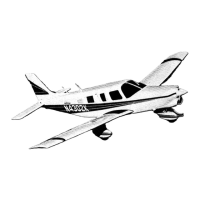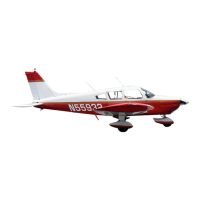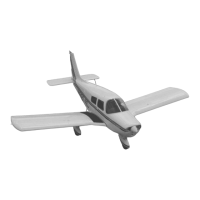d. Should
any items be dropped
into the engine,
the assembly process
must stop and
the
item removed,
even though
this may require
considerable time and
labor. Insure that
all parts
are thoroughly clean before assembling.
e. Never reuse
any lockwire,
lockwashers, tablocks,
tabwashers
or cotter pins. All
lockwire
and cotter pins
must fit snugly in
holes drilled in studs
and bolts for locking
purposes.
Cotter
pins should be
installed so the head
fits into the castellation
of the nut,
and unless
otherwise
specified, bend one
end of the pin back
over the stud or bolt
and the other end
down
flat against
the nut. Use only
corrosion resistant
steel lockwire and/or
cotter pins. Bushing
plugs shall be lockwired to the assembly base or case. Do not lockwire the plug to the bushing.
f. All gaskets, packings and rubber
parts must be replaced with new
items of the same
type at reassembly.
Insure the new nonmetallic parts
being installed show no sign of having
deteriorated in storage.
g. When
installing engine parts
which require
the use of a hammer
to facilitate assembly
or installation, use only
a plastic or rawhide
hammer.
h. Whenever
adhesive tape
has been applied
to any part, the
tape and all residue
must be
removed and thoroughly cleaned
with petroleum solvents prior
to being subjected to high
temperature
during engine
run. This would
also apply to parts
that have corrosion
preventive
compounds applied.
i. Anti-seize
lubrication should
be applied
to all loose-fit spline
drives which
are
external
to the engine and
have no other
means of lubrication.
For certain
assembly
procedures, molybdenum
disulfide
in either paste or
powdered form mixed
with engine oil or
grease
may
be used.
CAUTION
Ensure
that Anti-seize compounds
are applied in thin even
coats, and
that excess
compound
is completely
removed to
avoid
contamination
of adjacent parts.
j. Temporary
marking methods are those markings
which will ensure identification
during ordinary
handling, storage
and final assembly of parts.
8A-2. TROUBLESHOOTING.
Troubles
peculiar to the
power plant are listed
in Table VIII-
III, of Section
VIII along with
their probable
causes and suggested
remedies. When
troubleshooting
the engine, ground
the magneto primary
circuit before performing
any checks
of the engine.
Refer to Table
VIIIA-II for troubleshooting
information
relating to
the
turbocharger.
8A-3.
PROPELLER.
8A-4. REMOVAL
OF PROPELLER.
a. Insure
master and magneto
switches are off.
b.
Move
fuel selector
to off
position.
c.
Place mixture control
in idle cut-off.
d.
Note position
of components
to facilitate
reinstallation.
e. Remove screws
attaching spinner
cuff and spinner
assembly and
remove spinner.
f. Remove
the safety wire
from the six propeller
mounting
bolts and remove
the bolts
and propeller.
g.
Place a drip pan
under propeller
to catch oil
spillage, remove
propeller.
h. It is recommended
that
for severe damage,
internal repairs and
replacement of parts,
the propeller should
be referred
to the Hartzell
Factory or Service
Station.
Revised: 10/3/80
POWER PLANT-TURBO
LANCE
II SERVICE
MANUAL
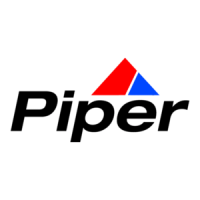
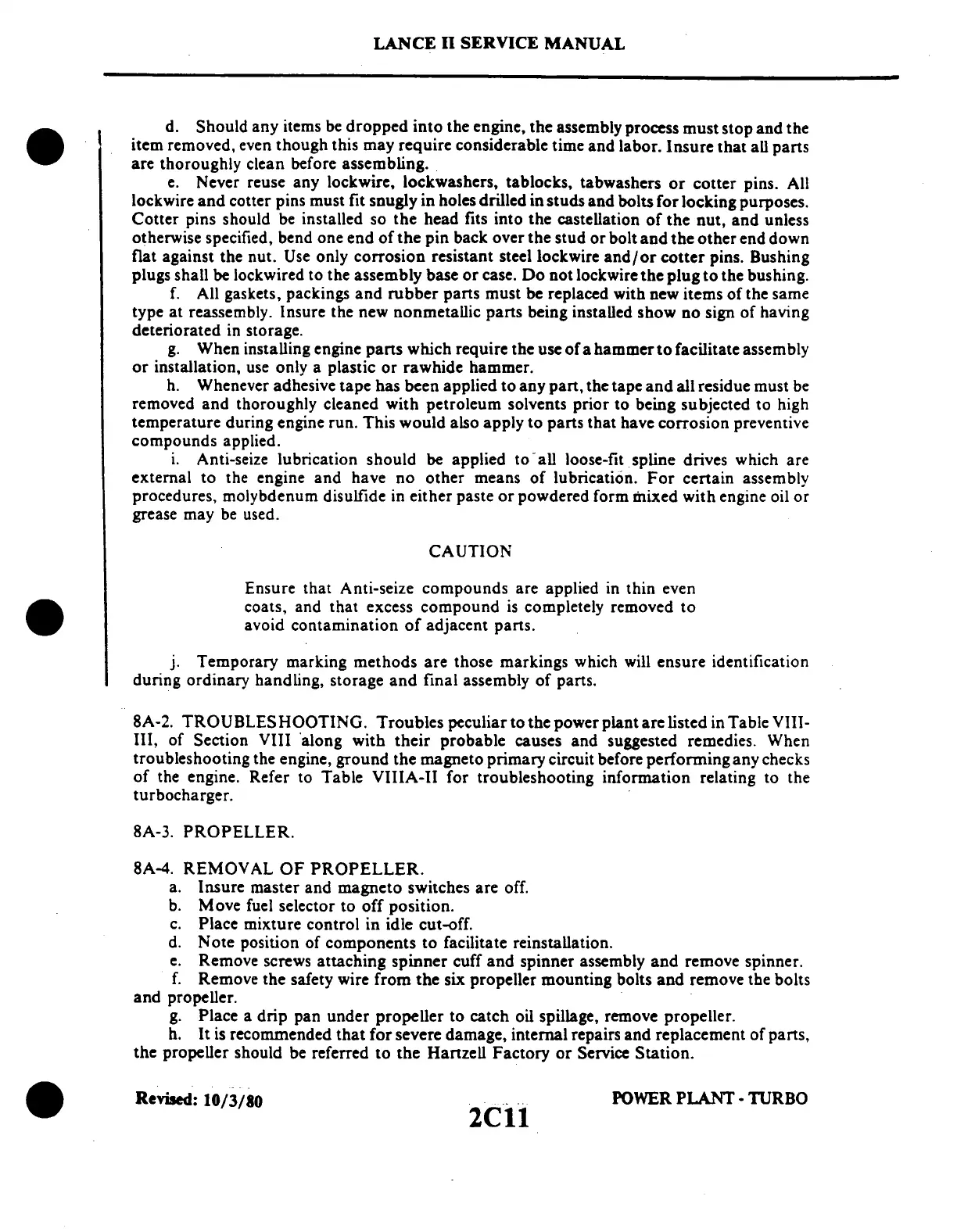